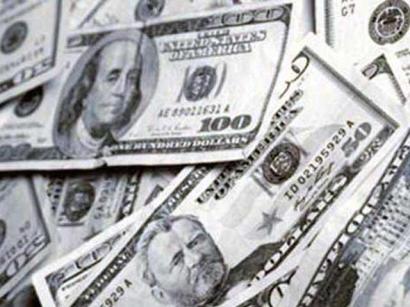Federal regulators on Friday seized ShoreBank, the fabled South Side bank known for its community lending, and turned its good assets back over to its management team to be reopened as Urban Partnership Bank
It is the 15th bank in the state closed this year because of the recession.
Those regulators walked into ShoreBanks' busiest branch, located at 79th and Cottage Grove and took it over.
A spokesperson said customers should not be worried about their money, but some people we talked to hope the new bank will continue to extend loans to people in the neighborhood.
Some people said ShoreBank would help when other banks would say "no."
"I'm hearbroken. It's just like losing a family member because I've been knowing them ever since 1996 and they've always been friendly and take care of customers," said one ShoreBank customer while watching watching regulators go in and out of the bank.
"I've been banking here for 15 years. Some of my friends ask me about buying a house or starting a business. They want to get loans and they do here," another ShoreBank customer said.
Regulators said a lot of those loans ultimately did in ShoreBank.
All of ShoreBanks' branches in Chicago, Detroit and Cleveland will re-open under new management Saturday morning.
ShoreBank started out as "South Shore Bank" back in the 1970's. It was one of very few banks that would extend credit to low income families, mostly on the south side so they could buy their first homes or start a business. The problem for ShoreBank was making so-called jumbo loans to people buying multi-unit apartment complexes.
ShoreBank had more than a year to raise $150 million to save it. That failed, so now the bank is called Urban Partnership Bank. Whichever name is on the door, regulators say deposits are safe.
"They money is fully protected. The transaction the FDIC entered with Urban Partnership Bank, the new bank here, the way it was structured, all deposits were taken over by all the new banks whether you had five dollars or five hundred thousand dollars. David Barr, spokesman with FDIC said.
The new owners say whatever business customers had at ShoreBank will continue under Urban Partnership Bank. They have deep roots in Chicago. The new CEO is a former executive at the old First Chicago Bank which is now Chase.
ShoreBank, the South Side lender that carved out a national reputation by successfully lending in low-income urban neighborhoods for three decades, was seized by regulators Friday after an extraordinary rescue effort featuring the nation’s largest financial firms fell short.
But all was not lost for the neighborhoods ShoreBank has served for more than three decades.
The new management of the bank, led by former First Chicago Corp. senior executive David Vitale, acquired $1.54 billion in deposits and most of ShoreBank’s $2.14 billion in assets from the Federal Deposit Insurance Corp. and will reopen ShoreBank’s 15 branches in the Chicago area, Cleveland and Detroit Saturday morning as Urban Partnership Bank.
The Federal Deposit Insurance Corp. agreed to share losses on $1.41 billion of those assets. The management-led buyout team agreed to pay a 0.5% premium for the deposits and received an asset discount of $146 million.
For the FDIC, the estimated hit to its insurance fund from the failure will be $367.7 million.
In a special news release, the FDIC said the team was the only bidder for the bank and its bid saved the federal fund set aside for bank failures between $250 million and $334 million over a plain liquidation of the bank.
Backing Mr. Vitale and his team were many of the same financial giants — like Goldman Sachs Group Inc. and J. P. Morgan Chase & Co. — that had committed $150 million in fresh equity to ShoreBank in the spring to try to forestall the failure.
Other investors highlighted by the FDIC were Bank of America Corp., American Express Co., Harris N.A., General Electric Co.’s equity investments arm, PNC Investment Corp., State Farm Insurance Cos., Wells Fargo & Co., Key Community Development Corp., Citigroup Inc., the Ford Foundation and the John D. and Catherine T. MacArthur Foundation.
The FDIC emphasized that it went through its normal bidding procedure for ShoreBank, whose Wall Street bailout has provoked a firestorm on the political right because of suspicions that the Obama administration strong-armed the big financial houses into supporting ShoreBank. The administration has consistently denied that.
Urban Partnership will pursue much of the same mission that drove the founders of ShoreBank when they acquired the old South Shore National Bank in 1973 with the plan to invest in rehabbing the housing stock of the middle-class neighborhood that at the time had been hurt badly by white flight.
ShoreBank was profitable for most of its existence until it was swamped by an avalanche of bad loans in the worst recession since the 1930s.
The failure marks a severely disappointing cap to the careers of ShoreBank co-founders Ronald Grzywinski and Mary Houghton, who earned national acclaim from the likes of President Bill Clinton for demonstrating that banks could earn profits while lending in the inner city. Both left the bank earlier this year, as Mr. Vitale, 63, a longtime resident of Hyde Park on the city’s South Side, agreed in the spring to lead the rescue effort.
The FDIC noted that the board and executives “who presided during the deterioration of the condition of the institution will not be retained.”
Mr. Vitale will serve as chairman of Urban Partnership Bank, while his longtime lieutenant and former First Chicago colleague, William Farrow, will be president and CEO.
It’s unclear whether there will be any role for current ShoreBank CEO George Surgeon, a more than 30-year veteran of the bank who agreed to take over its leadership nearly a year ago. A spokesman for the bank said he didn’t know what Mr. Surgeon’s future role might be.
In a release, Mr. Vitale said, “Urban Partnership Bank will provide access to financial services and support to distressed neighborhoods in order to help transform distressed neighborhoods into strong, stable communities.”
None of ShoreBank's new leadership was available for comment Friday evening.
Given the severity of ShoreBank’s loan losses — the $2-billion-asset bank suffered a net loss of over $100 million last year — it’s remarkable that a bank dedicated to carrying on its work is emerging from the wreckage. Lenders in far better shape that have gone through the FDIC’s failure process generally have been absorbed into larger banks.
To be determined later: What happens with the assets other than the Chicago-based bank, which are held by holding company ShoreBank Corp., the spokesman said. They include several non-profits, an international for-profit subsidiary that fosters micro-lending in poor countries and Ilwaco, Wash.-based ShoreBank Pacific, a separately chartered lender catering to “green” businesses.
ShoreBank Pacific CEO David Williams last spring said he was in talks with outside buyers in the event that ShoreBank failed. He didn’t return a call Friday requesting comment.
Source: http://www.nbcchicago.com/news/Feds-Seize-ShoreBank-101219834.html#ixzz0xFqpSsp1



 Planting flowers along right-of-ways is one way that residents show they care about their neighborhood. For years, Chatham residents have planted flowers along King Drive.
Planting flowers along right-of-ways is one way that residents show they care about their neighborhood. For years, Chatham residents have planted flowers along King Drive.

































